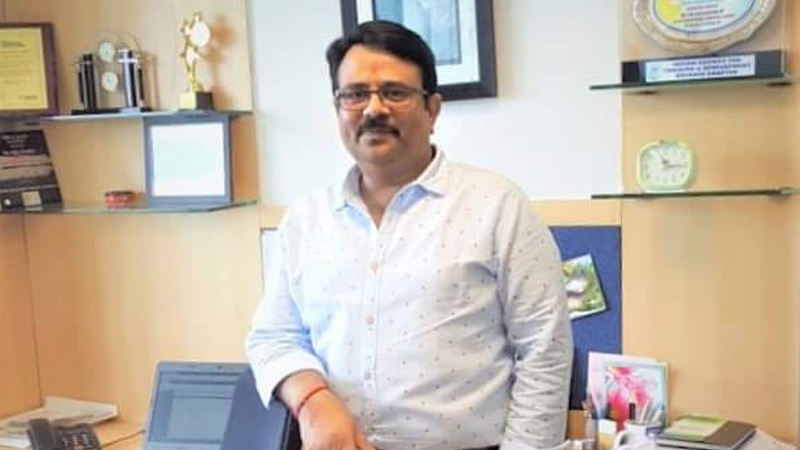Sustaina Greens, a certified GreenTech consultancy registered with India’s Ministry of Corporate Affairs, delivers integrated, nature-based solutions that tackle today’s most pressing environmental and climate challenges head-on. The firm works closely with both public and private sector clients to craft technically robust strategies that reduce ecological footprints while driving sustainable transformation. Its comprehensive suite of services spans biodiversity assessments, GIS-based remote sensing, sustainability reporting, ESG and net-zero strategy development, renewable energy integration, and circular economy frameworks. Additionally, Sustaina Greens supports environmental impact assessments, life cycle analyses, and CSR initiatives. Through expert-led training programs and internships, the firm empowers organizations to cultivate ethical and sustainable business models.
Since 2009, GC Advisory Services—the ESG and sustainability arm of General Carbon—has been at the forefront of climate consulting. With a portfolio exceeding 250 clients across India, Southeast Asia, Africa, and the Middle East, the division delivers specialized solutions in ESG disclosures, climate finance, carbon markets, and net-zero transition strategies. Under the leadership of CEO Priyanka Pothana, its 35-member team blends financial acumen with deep ESG expertise, earning accolades such as Asia’s Best Carbon Asset Management Company.
In an exclusive conversation with The Interview World during the International Summit & Expo on Bioenergy Value Chain—organized by the Indian Biogas Association—Garima Singh, CTO of Sustaina Greens, and Anuradha Singh, Associate Director and Lead for Carbon Markets at GC Advisory Services, shared compelling insights. They unpacked the critical solutions their firms offer to address sustainability challenges, emphasized their contributions to global climate action and carbon credit systems, and spotlighted emerging market opportunities. Their perspectives underscore the pivotal role of innovation and collaboration in shaping a low-carbon, resilient future.
Q: What specific solutions is Sustaina Greens providing to address the key challenges in the renewable energy sector?
A: At Sustaina Greens, we deliver end-to-end sustainability solutions, with a strong focus on biodiversity assessment and carbon sequestration—services that have become critical across industries, including the rapidly expanding renewable energy sector. As businesses grow and develop new land, they must account for biodiversity impacts. Unfortunately, many still overlook the importance of maintaining ecological balance.
We emphasize that protecting biodiversity isn’t optional—it’s essential. A thriving ecosystem forms the backbone of human survival; without nature, there can be no future. That’s why we work closely with companies to integrate biodiversity conservation into their operations. Where needed, we also implement carbon sequestration strategies to offset emissions and enhance environmental integrity.
In addition, we actively support companies in accessing and managing carbon credits, creating pathways toward their net-zero goals. By offering a suite of interconnected services under one roof, Sustaina Greens empowers organizations to adopt truly sustainable, nature-positive business models—ensuring they not only comply with environmental standards but also lead the way in building a resilient future.
Q: In what ways does your solution actively support global climate change mitigation and sustainability goals?
A: Climate change may seem like a vast, abstract concept—but real progress begins with small, consistent actions. Every step matters. The first is reconnecting with nature and instilling this awareness in the younger generation. We are, quite literally, the last generation standing before irreversible extinction—witnessing firsthand the disappearance of countless species.
To reverse this trajectory, we must urgently protect and preserve our natural ecosystems. A thriving environment directly supports climate stability. The problem isn’t just excessive carbon emissions—it’s also the alarming lack of oxygen regeneration. While planting trees is a step forward, it’s not enough. The real impact comes from nurturing and maintaining those trees long after they’re in the ground.
Caring for the environment means more than symbolic gestures. It demands responsibility—ongoing care for both flora and fauna. Without this commitment, we risk losing the delicate balance that sustains life. Ultimately, safeguarding nature is not just an environmental duty; it’s a survival imperative.
Q: What market opportunities does Sustaina Greens foresee in India for its services and solutions?
A: We may be just two years old, but we began with a strong foundation in India—and we’re now poised to expand globally. The momentum is clear. As climate change becomes a universal concern, industries across sectors are increasingly interconnected. Ecological solutions are no longer niche; they’re essential. Just as IT once became ubiquitous, sustainability is now becoming the common thread—and we are at the forefront of this shift.
Notably, we were among the first to register Programme of Activities (PoAs) for major organizations like Mahindra. Backed by over 15 years of collective experience, our team has successfully registered more than 100 projects and generated over 50 million carbon credits to date.
Today, we are leading the charge under Article 6 of the Paris Agreement. We are actively working in African nations such as Ghana, Cameroon, and Ivory Coast, while also expanding our footprint in Asia through projects in Nepal and Sri Lanka. In India, our current focus lies in cutting-edge initiatives—bio-CNG, green hydrogen, and green ammonia projects.
As the global demand for sustainable solutions accelerates, we see immense opportunity ahead. We are ready to scale, innovate, and lead the way toward a more climate-resilient future.
Q: What kind of carbon credit ecosystem is GC Advisory Services offering to companies, and what mechanisms are you employing to ensure its effective implementation and impact?
A: Carbon credits represent the reduction of greenhouse gas (GHG) emissions achieved through specific activities. The concept emerged a few decades ago, when nations collectively acknowledged the urgent threat of global warming and committed to act. This global consensus gave rise to frameworks like the Paris Agreement and the Clean Development Mechanism (CDM), which laid the foundation for international carbon markets.
India played a pivotal role in the CDM era, leveraging its renewable energy initiatives—hydro, solar, and wind—to generate substantial carbon credits. These efforts positioned the country as a key contributor to global emission reduction.
With the evolution of climate policy, every country is now expected to set and meet its own emission targets under Nationally Determined Contributions (NDCs). Countries that exceed these targets can trade their surplus carbon credits with those falling short. In line with this, India has identified 14 priority sectors where carbon mitigation activities are financially and technically challenging. These categories qualify for carbon credit generation under India’s evolving climate strategy.
Meanwhile, conventional projects—such as renewable energy—will now directly contribute to fulfilling India’s NDC commitments. Technically advanced and high-impact projects will continue to drive innovation and global collaboration in the carbon market.
Q: How does GC Advisory Services support manufacturers, particularly high carbon emitters, in effectively reducing their carbon footprint?
A: Every organization—especially those in manufacturing—inevitably generates emissions. Complete elimination isn’t always feasible. However, when companies take voluntary steps to reduce their emissions beyond regulatory requirements, we step in to help them unlock additional monetary value through established carbon credit protocols and platforms.
At General Carbon, our current focus lies on Article 6 projects under the Paris Agreement, particularly through government-to-government (G2G) cooperation and Article 6.4 mechanisms overseen by the United Nations Framework Convention on Climate Change (UNFCCC). These global frameworks enable verified emission reductions to be traded internationally, creating new avenues for climate finance.
But our role goes beyond carbon credits. We offer a comprehensive suite of services, including ESG strategy, decarbonization planning, and net-zero goal alignment. We begin by helping organizations calculate their emissions baseline. From there, we design tailored solutions to reduce their carbon footprint while maximizing long-term sustainability and compliance.









